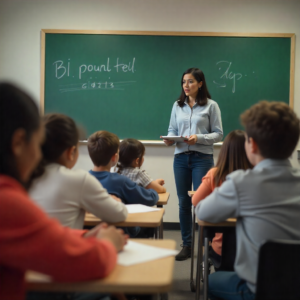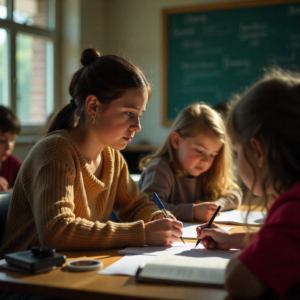
Schools Want AI, Teachers Are Scared: How Leaders Can Bridge the Trust Gap
Discover practical AI approaches that help teachers save time and teach more creatively – by reducing admin work, enhancing lesson ideas, and supporting student engagement


Discover practical AI approaches that help teachers save time and teach more creatively – by reducing admin work, enhancing lesson ideas, and supporting student engagement

Discover a clear, actionable process for schools to integrate AI with purpose – by aligning goals, upskilling staff, selecting the right tools, and building a future-ready learning culture that supports both teachers and students.
Discover practical AI approaches that help teachers save time and teach more creatively – by reducing admin work, enhancing lesson ideas, and supporting deeper student engagement

Discover practical AI approaches that help teachers save time and teach more creatively – by reducing admin work, enhancing lesson ideas, and supporting student engagement
Explore insightful articles and updates that keep you abreast of the evolving landscape of education, ensuring you stay ahead in your educational journey.